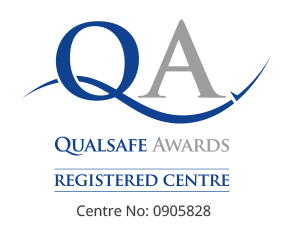Excellent student support services
We’ve got a great student support network offering advice and guidance on careers and future employment, finance, health and welfare, additional learning support and much more.
 This two-day Paediatric First Aid course is designed for individuals working with young children and infants, as well as those pursuing an Early Years Educator qualification. This course is EYFS-compliant and meets the statutory requirements for Ofsted-registered early year’s providers. With West Notts College’s high-quality training, you’ll gain essential skills and confidence in paediatric first aid, ensuring safety in any setting.
This two-day Paediatric First Aid course is designed for individuals working with young children and infants, as well as those pursuing an Early Years Educator qualification. This course is EYFS-compliant and meets the statutory requirements for Ofsted-registered early year’s providers. With West Notts College’s high-quality training, you’ll gain essential skills and confidence in paediatric first aid, ensuring safety in any setting.
Equip yourself with the knowledge and confidence to protect young children in any emergency with West Notts College’s trusted paediatric first aid training. Apply now.
We also offer on-site first aid training at your workplace. Please call our Employer Engagement Team on 0800 121 8317 for more information.
“The trainer was knowledgeable and engaging, making the content both informative and practical. The course was well-structured and we left feeling confident in our ability to respond in an emergency. We would definitely recommend West Notts College to any business looking for high-quality training!”
Frank eXchange Limited
Upcoming dates
Costs
Our experienced instructors will guide you through handling various emergency situations for babies and children, including:
For advice and guidance on the careers this course may lead to, contact the our award-winning Careers and Employability team. Our fully qualified and experienced professional advisers specialise in providing high-quality, impartial careers advice and guidance, and can support you in exploring the career pathways this course or similar courses may offer.
Visit our first aid subject area to explore the full range of courses available.
Whilst every effort is made to ensure the information on the Website is correct, some details may be subject to change. West Nottinghamshire College reserves the right to make amendments to the courses, dates, fees or other details, and to make cancellations or changes if numbers are insufficient. In the unfortunate situation that we have to cancel a course we will refund your fees in full, but we regret we are not able to offer any refund if you withdraw from your course or fail to start, and you will be liable to pay any outstanding fees that may be due.
We’ve got a great student support network offering advice and guidance on careers and future employment, finance, health and welfare, additional learning support and much more.
Whether you travel by bus, train or on foot there are many different transport options available. You can also unleash your freedom with the West Notts College Travel Scheme which provides a flexible and great value bus travel service.
We have eight campuses each boasting a number of state-of-the-art facilities.
We’re always investing in college facilities to make sure you have access to the most up-to-date, industry-standard equipment. Our strong links with employers means you can secure work placements as part of your wider learning – providing you with vital industry experience and employability skills, getting you ready for the world of work.
Most have worked in the industry they're teaching, so you'll learn the skills employers are looking for. They'll support and encourage you to achieve the best results possible.
We proudly celebrate LGBTQ+ diversity, including Pride. Our college is a supportive community that welcomes and embraces individuals of all sexual orientations and gender identities.
Test